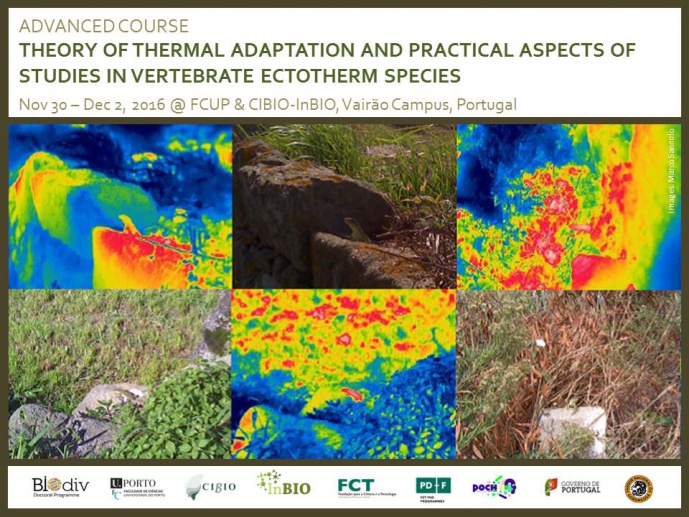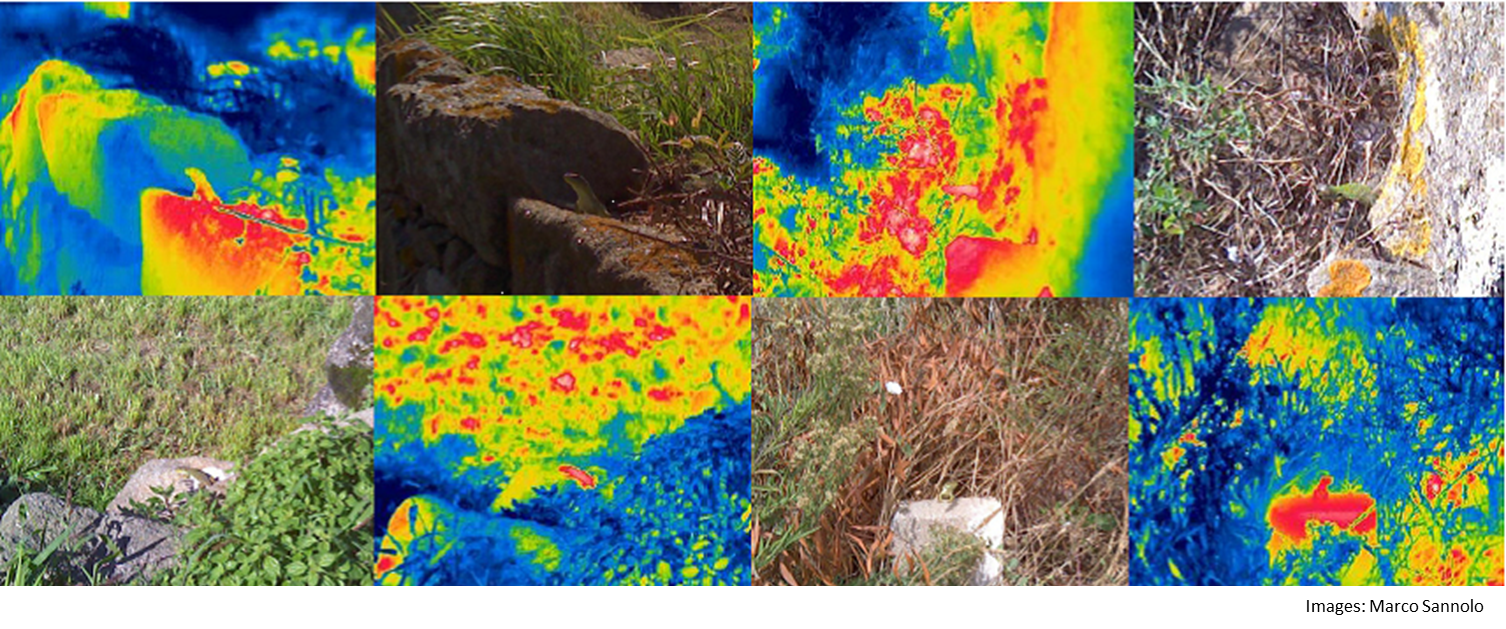ADVANCED COURSE: THEORY OF THERMAL ADAPTATION AND PRACTICAL ASPECTS OF STUDIES IN VERTEBRATE ECTOTHERM SPECIES


Thermal adaptation is the scientific discipline that links variation in environmental temperatures to phenotypic evolution. Thermal environments exert strong selective pressures on life-history traits as well as on behaviour and physiology. Thus, we can observe that temperature has a profound effect on organisms’ phenotypes and their distributions. Species are constantly exposed to temperature changes in their environment. Small vertebrate ectotherms, such as lizards, use behavioural thermoregulation to keep their temperature in a preferred range. We will use lizards as model species to provide an example of how to build and test a spatially-explicit theory of thermoregulation. Such studies need to integrate physiology and behaviour with spatial distributions of populations, as well as take into account different ecological factors that may influence the thermoregulation (e.g. competition, dispersal, colouration, predation, and parasitism). This course will provide a theoretical background on the topic of thermal adaptation integrated with ecological questions. The course will cover a variety of approaches and methodologies used to study thermoregulation, with an emphasis on ectothermic vertebrate. Students will learn the principles of constructing theoretical models, designing experiments, and analysing data in ecological and evolutionary contexts.
PROGRAMME
DAY 1. November 30, 2016
09h30 - 12h30 | Theory of thermal adaptation
14h00 - 16h00 | Integrating physiology, behaviour and spatial modelling in studies of thermoregulation
16h30 - 17h30 | Including ecological factors into studies of thermoregulation: examples
DAY 2. December 1, 2016
09h30 - 12h30 | Practice: experimental approaches and methodologies in thermal adaptation studies - PART 1
14h00 - 16h00 | Practice: experimental approaches and methodologies in thermal adaptation studies - PART 2
16h30 - 17h30 | Practice: experimental approaches and methodologies in thermal adaptation studies - PART 3
DAY 3. December 2, 2016
09h30 - 10h30 | Overview of statistical approaches
10h30 - 12h30 | Hands-on session/Discussion
14h30 - 17h30 | General discussion
REQUIREMENTS
Participants are advised to bring their own laptops.
COURSE INSTRUCTORS AND ORGANIZERS:
Michael J. Angilletta Jr. (School of Life Sciences, Arizona State University)
Michael W. Sears (Clemson University)
Miguel A. Carretero (CIBIO InBIO, University of Porto)
Anamarija Žagar (CIBIO InBIO, University of Porto)
Marco Sannolo (CIBIO InBIO, University of Porto)
INTENDED AUDIENCE
The course will be open to a maximum number of 25 participants.
Priority will be given to:
- 1st year and other PhD students attending the BIODIV Doctoral Program;
- PhD students attending other courses;
- Other post-graduate students and researchers.
REGISTRATION
Registration deadline: November 16, 2016.
Participation is free of charge for BIODIV students
Registration fee for other participants: 70 € (students) / 120 € (post-doc).
To register, please send an e-mail accompanied by your short CV (max. two A4 pages) to anamarija.zagar@gmail.com.
Please refer your status (PhD student, Post-Doc researcher, Other) and the University to which you are affiliated. Selection of participants will be made on the basis of their CV (previous work experience on thermal adaptation and relevance of the course for their research).
![]()